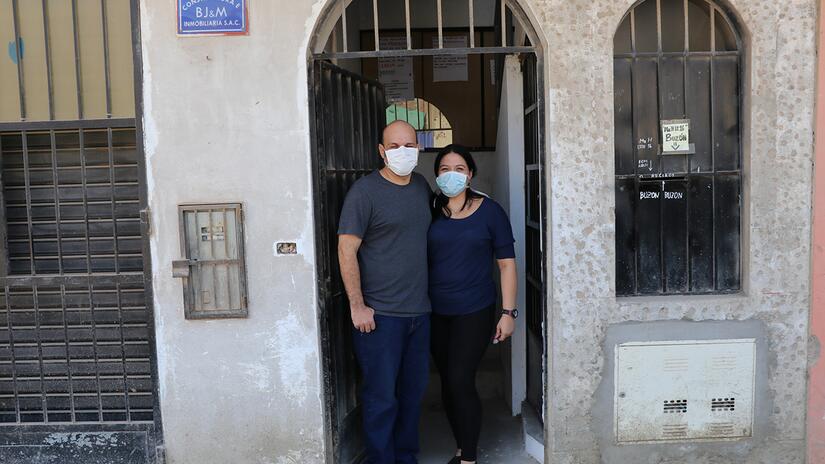Dora studied to be a kindergarten teacher, and William, a computer technician. The two met thirty-two years ago in their beloved Venezuela. They were friends for a long time, before becoming life partners, as they like to call themselves. They have two years of relationship, the same time that they have been living in Lima, the capital of Peru. Two years ago, they decided to migrate to this country, in search of a better quality of life, and together, to undertake projects that they have planned for the long term.
“We left Barquisimeto, Lara state, and moved to Tachira, in order to cross the Simon Bolivar bridge. After the registration process, which lasted approximately five hours, we entered Colombia. From there we took a bus from Cucuta to Rumichaca. In Ecuador we took a minivan to Quitumbes, there the change of weather was very strong, very cold. From there it took us twelve hours to reach the border with Peru and enter through CEBAF in Tumbes. Already there we took a bus to Lima”. That’s how they tell us about the six-day journey that they had to made before arriving to their destination. On this journey, they were victims of robbery three times. This is how they arrived at Lima without money, without a telephone, and without a way to communicate with their families.
When they went out looking for a job, they met the owners of the building where they now live, who initially gave them the opportunity to stay in a small place in the basement, without charging them anything during that period. They consider that, thanks to these people and their generous help, they had the opportunity to undertake, and to be able to pay for the rent and the basic expenses and services of the apartment they occupy today.
"The first job hunt was not easy at all, the life of the migrant is quite hard in any country" William tells us. In these two years, between him and Dora they have had several jobs, always temporary, and periods of unemployment. Dora's first job was in a shoe store in a market, and William's in a restaurant where he did all the chores, and where he spent most of the day “The hours were quite strong. I left here at 9 in the morning and returned 2 or 3 in the morning the next day”, he says.
For both Dora and William, the months from January to March are the most difficult, as this is the time where there are no many job opportunities, and because many of the contracts are until December. Last year they decided to do different things to generate income at this time, and together they began to work with crafts, and baking pastries for sale. "We also made soup, but we did not sell this, we gave it to the neighbours so they could try our food" says Dora. Then, together, they worked in a school renovating the furniture in the kindergarten area. They managed to finish this work with a lot of effort and deliver it on time before the start of classes, which were suspended three weeks later, due to COVID-19.
Dora and William have been complying more than two months with the mandatory isolation that the Peruvian government decreed as a measure of response to the COVID-19 emergency. “Quarantine has not been easy on an economic level because we do not produce, we do not have an income; but at a personal level, it has been very pleasant, because since we arrived in the country the only thing we have done has been working all the time. Here the work hours are more than eight, plus the time it takes to get to work, you are on the street all day. Now, this time of isolation has helped us to understand each other as a couple and has also helped us to value the person next to you before the material, and to collaborate within your possibilities with those around you", reflects Dora. She also tells us that this time is serving them to prepare for different things, and they have focused on following whatever free courses, workshops, and conferences they find in their path.
But not generating income, increased pressure and concern for tomorrow. “The help of the Red Cross came to us from heaven, because that day we ran out of food, we have had been feeding only with bread and water for a week, so this help has been a blessing. If it hadn't been for that help, imagine how we would be right now” adds Dora.
Dora and William are part of the Cash-based Intervention of the Red Cross, implemented with support from the European Union. This program gives a card to vulnerable families, so they can spend on what they need most right now.
"The same day they gave us the card, a neighbor who has a small baby ran out of milk, and well, so we were also able to help her." Dora tells us, showing herself to be an example of solidarity even in times of emergency.
Article
World Radio Day: How radio helps keep communities healthy and safe
World Radio Day: How radio helps keep communities healthy and safe
| Article

